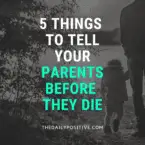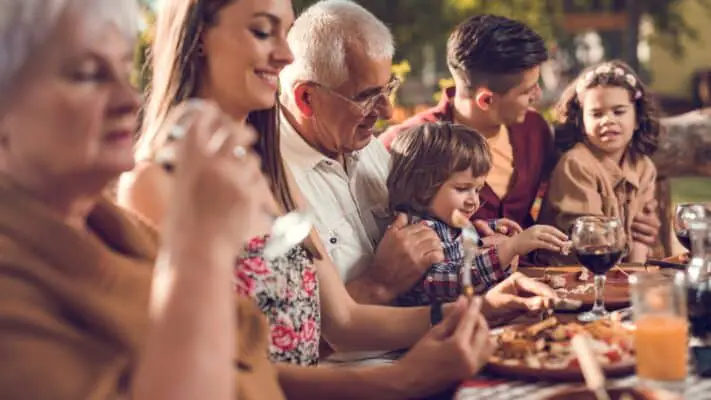

Our childhood experiences and the nature of our relationships with our parents greatly vary from person to person. Some of us were blessed with nurturing, supportive parents and a loving childhood, while others were not so fortunate, having experienced pain, trauma, and possibly dysfunctional or absent parents.
With this in mind, this article aims to serve as a guiding beacon, helping us identify the essential things we might want to convey to our parents before their time comes. It’s a prompt, encouraging you to follow your heart and intuition as you tread your personal journey of communication with your parents.
To our readers who have already lost their parents, you can still express any unspoken thoughts or feelings by writing a letter. It’s a beautiful belief that their souls can receive your messages and intentions beyond the physical realm.
5 Essential Conversations to Have With Your Parents Before It’s Too Late
1. Express Your Authentic Self
Growing up, we may not always have had the chance to openly express our thoughts, feelings, needs, or wants. As adults, we might feel compelled to convey certain things to our parents. This isn’t solely about unburdening ourselves; it can be a healing process for both parties involved.
Remember, you have the right to share your truths, recounting experiences, thoughts, feelings, even if they’re unpleasant or difficult. Ask yourself, will your relationship feel complete if certain things remain unsaid? Speaking up can promote bonding, healing, closure, and strengthen the connection.
2. Share Your Gratitude
Take the opportunity to express your appreciation towards your parents directly. If there are specific memories, instances, or present-day aspects you’re grateful for, don’t hesitate to communicate these sentiments. While they might already be aware of your love and gratitude, verbalizing your feelings offers a sense of closure and allows your heart to fully express itself.
3. Recognize Their Humanity
Human existence is inherently complex. As individuals, we are far from perfect, each of us attempting to make sense of life’s journey as we move along. This is equally true for our parents.
It’s crucial to understand that both you and your parents were shaped by your early life experiences. Recognizing this shared humanity can be healing, especially if your past with your parents was challenging or painful.
4. Offer Forgiveness
Granting forgiveness requires a tremendous amount of courage, understanding, and love. If you’re holding onto resentment or pain, forgiving your parents can be a powerful step towards emotional freedom. It doesn’t absolve them of their mistakes, but it liberates you from the burden of the past.
5. Apologize
If there are instances where you feel you’ve wronged your parents, offering an apology can be incredibly healing. It’s not a sign of weakness, but a testament to your character and your willingness to rectify past wrongs. It’s a loving and authentic gesture that contributes to healing and understanding.
Related: Making the Most of Time: A Comprehensive Guide to Navigating Life with Aging Parents >>
Final Thoughts
Life with parents, much like life itself, is a journey filled with an array of emotions, experiences, and meaningful conversations. As we navigate this intricate path, it is important to express ourselves and share those vital sentiments with our parents, irrespective of whether our childhood was a rosy picture of love or a complex maze of challenges.
This article serves as a reminder and guide to navigate these often delicate conversations. It encourages you to voice your feelings, express your gratitude, acknowledge the humanity of your parents, offer forgiveness if needed, and muster the courage to apologize when necessary.
Navigating the landscape of life and death is a deeply personal journey. Each conversation, each word, each moment is unique to you and your parents. Let your heart guide you, let love pave the way, and let understanding be your compass.
















